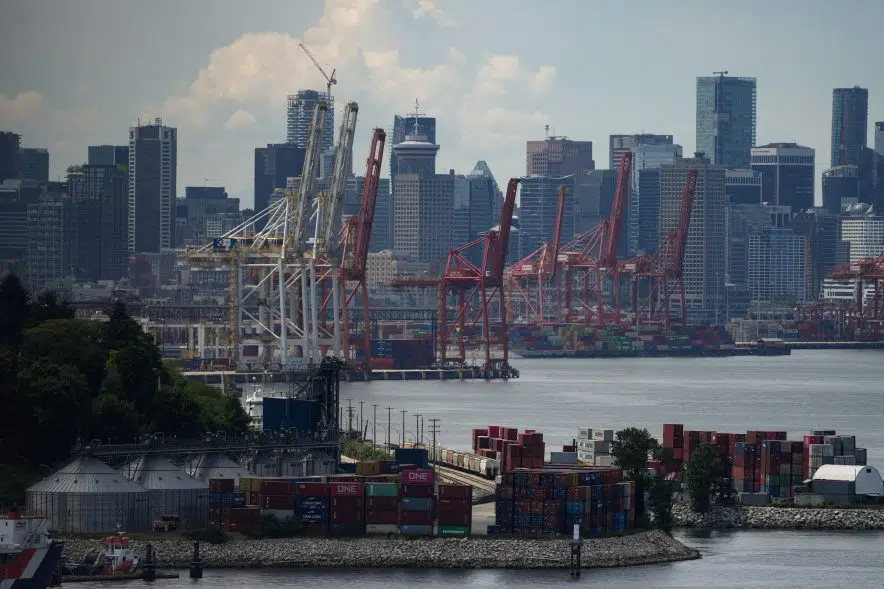Products from Saskatchewan could soon be flowing through B.C. ports again after a tentative agreement was reached to end a strike that lasted nearly two weeks.
The British Columbia Maritime Employers Association (BCMEA) and International Longshore and Warehouse Union (ILWU) Canada announced a proposed four-year contract Thursday. The deal needs to be ratified by both sides.
The strike involved 7,400 dock workers at more than 30 ports.
“In partnership with our member employers, the BCMEA is committed to working closely with ILWU Canada and their Locals and supply chain partners to safely resume operations as soon as possible …,” the employer said in a statement on its website.
“The BCMEA recognizes and regrets the significant impact this labour disruption has had on the economy, businesses, workers, customers and ultimately, all Canadians.”
Saskatchewan Premier Scott Moe was among those hoping for a quick resolution to the strike, saying it would be for “the betterment of all Canadians.”
The strike prompted Nutrien to announce Tuesday it was reducing production at its Cory potash mine southwest of Saskatoon. It’s unclear what impact the tentative agreement will have on the company’s plans.
STEP concerned about strike’s impact
The Saskatchewan Trade and Export Partnership believes the effects of the 13-day-long strike will be long-lasting through Saskatchewan and the rest of Canada.
“It will take months, if not the rest of the year, for transportation and logistics to right itself,” STEP CEO Chris Dekker said. “Equipment will be out of balance, vessels will be out of rotation (and) railcars out of alignment.”
As a landlocked province, Saskatchewan is one of the most dependent provinces for importing and exporting in Canada.
According to Dekker, Saskatchewan’s economy and exporters have already lost tens of millions of dollars in lost sales and increased costs during the strike.
“Our economy depends on exports and our exports depend on export infrastructure and there’s been ongoing anomalies and issues with capacity and efficiency,” said Dekker, “not only through the Port of Vancouver but also east through the Port of Montreal and south into the United States.”
Although potash took a big hit during the strike, Dekker said that was only one of many products that were affected.
During the strike, many chose to export through the Port of Montreal. Dekker said that will cause export delays anywhere from 60 to 70 days long.
“We send about $17 billion worth of our products through the port to markets in Asia, as well as into the southern U.S., Mexico and South America,” said Dekker. “So that’s about a third of our total exports in 2022.”
Dekker believes that although the effects of the strike were felt immediately in the province, the millions of dollars lost from Saskatchewan’s economy will be felt for much longer.
— With files from 650 CKOM’s Halyna Mihalik







